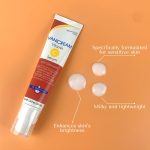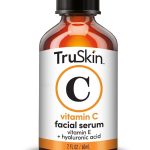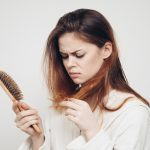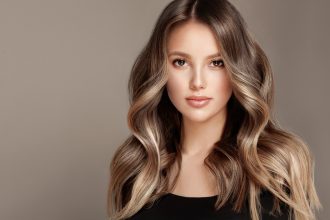Hair loss is a common problem for both men and women, And it can be caused by a variety of factors, Such as Stress, Genetics, Or a poor diet. One effective way to combat hair loss is to ensure that your body is getting the nutrients it needs to grow healthy hair. One of the most important vitamins for hair growth is vitamin C. In this article, We will explore the benefits of vitamin C for hair growth and the best food sources of this essential nutrient.

Understanding Hair Growth
Before we dive into the benefits of vitamin C for hair growth, it’s important to understand how hair growth works. Hair growth has three stages: Anagen, Catagen, and Telogen. Anagen is the active growth phase, Where hair follicles are actively producing new hair. Catagen is the transition phase, Where hair follicles shrink and hair growth slows down. Finally, Telogen is the resting phase, Where old hair falls out and new hair begins to grow.
The average person’s hair grows about half an inch per month, and most people lose about 50-100 hairs per day. However, Certain factors such as stress, Poor nutrition, Or hormonal imbalances can disrupt the hair growth cycle, Leading to hair loss.
The Surprising Benefits of Vitamin C for Hair Loss | 10 Best Sources
The Importance of Vitamin C for Hair Growth
Vitamin C, also known as ascorbic acid, is an essential nutrient that plays many important roles in the body, Including supporting immune function, wound healing, and collagen synthesis. Collagen is a protein that provides structure and strength to your hair, Skin, And nails, And vitamin C is necessary for the body to produce collagen.
In addition to supporting collagen production, Vitamin C also has antioxidant properties that help protect hair follicles from damage caused by free radicals. Free radicals are unstable molecules that can damage cells and contribute to ageing and disease.
How Vitamin C Works for Hair Growth
Vitamin C plays a crucial role in hair growth by supporting collagen production and protecting hair follicles from damage. Collagen is a protein that provides structure and strength to hair follicles, And it is essential for healthy hair growth. Without adequate collagen, Hair can become brittle and prone to breakage.
Vitamin C also has antioxidant properties that help protect hair follicles from damage caused by free radicals. Free radicals are unstable molecules that can damage cells and contribute to ageing and disease. By neutralising free radicals, Vitamin C helps keep hair follicles healthy and supports optimal hair growth.
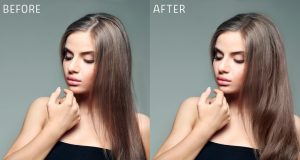
Signs of Vitamin C Deficiency
Vitamin C deficiency is rare in developed countries, but it can occur in people who have a poor diet or a medical condition that impairs nutrient absorption. Symptoms of vitamin C deficiency can include fatigue, Weakness, Joint and muscle aches, And anemia.
Symptoms of vitamin C deficiency can include fatigue, Weakness, Joint and muscle aches, and Anaemia. Severe vitamin C deficiency can lead to a condition called scurvy, Which is characterized by bleeding gums, Easy bruising, And slow wound healing.
In terms of hair health, A lack of vitamin C can lead to weak and brittle hair, slow hair growth, and hair loss. If you are experiencing any of these symptoms, It’s important to speak with a healthcare professional to determine if a vitamin C deficiency could be the underlying cause.
5 Best Hair Serum Products That Will Change Your Skincare Game
Food Sources of Vitamin C
The best way to ensure that your body is getting adequate amounts of vitamin C is to eat a healthy and balanced diet that includes a variety of fruits and vegetables. Some of the best food sources of vitamin C include:
- Citrus fruits (oranges, lemons, limes, grapefruit)
- Kiwi fruit
- Papaya
- Strawberries
- Guava
- Pineapple
- Mango
- Bell peppers (red, green, yellow)
- Brussels sprouts
- Broccoli
- Cauliflower
- Spinach
- Tomatoes
It’s important to note that vitamin C is a water-soluble vitamin, which means that it is not stored in the body and must be replenished daily. Cooking can also reduce the amount of vitamin C in food, So it’s best to eat fruits and vegetables raw or lightly cooked to maximize their nutrient content.
Recommended Daily Intake of Vitamin C
The recommended daily intake of vitamin C varies depending on Age, Gender, And other factors. The National Institutes of Health recommends the following daily intake of vitamin C:
- Infants 0-6 months: 40 mg/day
- Infants 7-12 months: 50 mg/day
- Children 1-3 years: 15 mg/day
- Children 4-8 years: 25 mg/day
- Children 9-13 years: 45 mg/day
- Teen boys 14-18 years: 75 mg/day
- Teen girls 14-18 years: 65 mg/day
- Adult men: 90 mg/day
- Adult women: 75 mg/day
- Pregnant women: 85 mg/day
- Breastfeeding women: 120 mg/day

Best Supplements of Vitamin C for Hair Growth
If you are not getting enough vitamin C from your diet, or if you have a medical condition that impairs nutrient absorption, You may benefit from taking a vitamin C supplement. There are many different types of vitamin C supplements available, Including capsules, Tablets, gummies, And powders.
When choosing a vitamin C supplement, look for one that is made from a high-quality source of vitamin C, Such as ascorbic acid or sodium ascorbate. It’s also important to follow the recommended dosage instructions on the label and to speak with a healthcare professional before taking any new supplements.
Precautions and Side Effects of Vitamin C Supplements
While vitamin C is generally safe and well-tolerated, Taking high doses of vitamin C supplements can cause some side effects, Such as:
- Nausea
- Diarrhea
- Abdominal cramps
- Headache
- Insomnia
- Kidney stones (in people with a history of kidney stones)
It’s important to follow the recommended dosage instructions on the label of your vitamin C supplement and to speak with a healthcare professional before taking any new supplements.
The Ultimate Guide to Hair Serums: Benefits, Usage, and Tips in 2023
Tips to Maximise the Benefits of Vitamin C for Hair Growth
Here are some tips to help you maximize the benefits of vitamin C for hair growth:
- Eat a balanced diet that includes plenty of fruits and vegetables rich in vitamin C.
- Take a high-quality vitamin C supplement if needed, but only under the guidance of a healthcare professional.
- Protect your hair from damage by avoiding harsh styling products and treatments, as well as excessive heat and chemical exposure.
- Practice good hair care habits, such as gentle brushing, regular washing and conditioning, and minimizing stress on your hair.
- Stay hydrated by drinking plenty of water and other fluids throughout the day.
Conclusion
Vitamin C is an essential nutrient that plays a vital role in many functions throughout the body, including healthy hair growth. By eating a balanced diet rich in vitamin C and taking a high-quality supplement if needed, You can help ensure that your body has the nutrients it needs to promote strong, healthy hair. As always, It’s important to speak with a healthcare professional before starting any new supplement regimen or making major changes to your diet or lifestyle.



